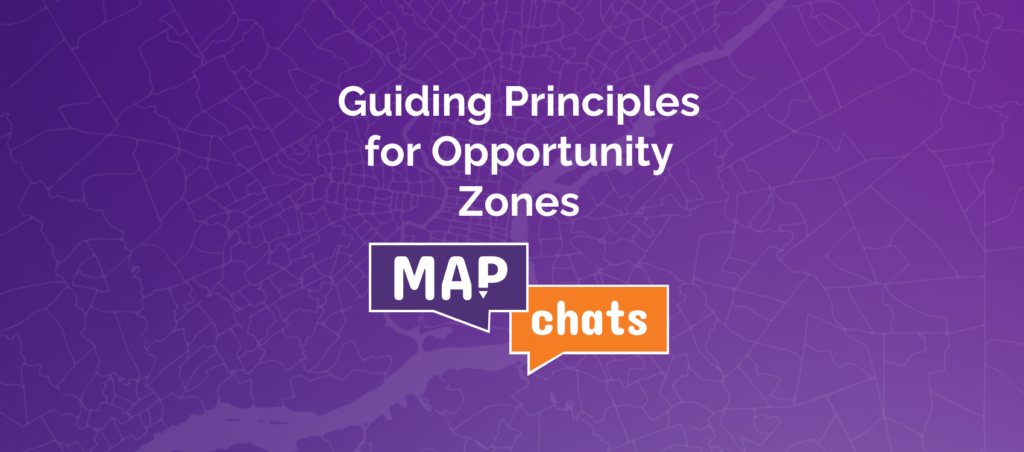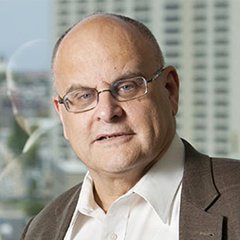Mapchats Webinar: Guiding Principles for Opportunity Zones

The Tax Cuts and Jobs Act of 2017 mainly got attention for various large and controversial tax breaks, but it quietly introduced a major new tax incentive program called Opportunity Zones. The program, which had bipartisan support, is meant to encourage economic development in struggling urban and rural areas.
Private investors have shown a lot of interest in this program, and it’s possible that Opportunity Zones will attract tens of billions of dollars in private capital, which would make it one of the largest economic development programs in U.S. history. It provides a deferral on federal capital gains taxes, and partial exemption for investments in designated areas.
In this Mapchats webinar, we talked to Jeremy Nowak about Opportunity Zones and their potential impact. Mr. Nowak is a prominent figure in urban policy and impact investment and has recently co-written a book, The New Localism: How Cities Thrive in the Age of Populism. We talked about what impact the program is likely to have, and what strategies might be used to maximize its effect.
You can watch the webinar, as well as see the slides from the presentation, by filling out this form:

Jeremy Nowak
Strategic advisor, author, columnist
Jeremy Nowak is a Distinguished Visiting Fellow at Drexel University’s Lindy Institute for Urban Innovation. He created The Reinvestment Fund, one of the largest community investment institutions in the United States, and chaired the Board of the Federal Reserve Bank of Philadelphia.
He is also the chair of investment committee for Spring Point Partners, on the board of directors of the University City Science Center in Philadelphia, on the Advisory Board of the Institute for Urban Research at the University of Pennsylvania, and a Senior Fellow at the Center for Impact Investment at the University of New Hampshire’s Carsey School of Public Policy.
Jeremy also chairs the board of The Philadelphia Citizen, a new media startup devoted to solutions based journalism. He consults on strategy for a variety of public, private, and civic institutions. A widely published author and columnist, he is the co-author with Bruce Katz of a new book published by Brookings Press entitled The New Localism: How Cities Thrive in the Age of Populism.